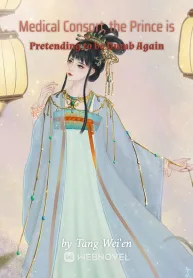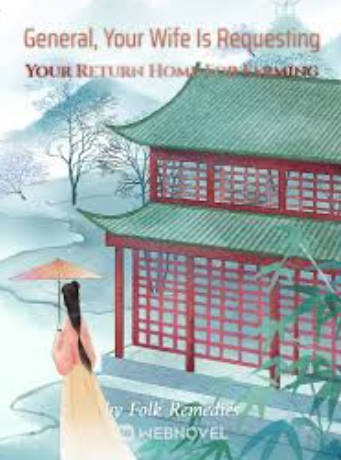Chapter 15
Translator: Atlas Studios Editor: Atlas Studios
When Zhou Can passed by the class monitor, Yang Chan, she smiled brightly and gave him a thumbs up.
Zhou Can smiled and nodded in response.
He found his seat following the serial number and sat down. There was a tablet computer provided by the hospital on the table.
He could directly enter the candidate’s name, ID number, and choose the department to apply for. Then, he could answer the questions.
For a top provincial Tertiary Grade A hospital like Tu Ya, the requirements for hiring House Officers were very high. House Officers in the clinical medicine department required them to take the comprehensive theory test.
In other words, not only were there surgical questions, there were also internal medicine, pediatrics, gynecology, obstetrics, ophthalmology, and so on.
Theories had always been Zhou Can’s forte.
When answering the questions, he moved his fingers quickly, answering all the difficult medical questions.
…
Zhou Can’s answering speed might be faster than most of the candidates but he still entered late. The loudspeaker announced that it was time to hand in the paper before he could finish answering the paper.
The candidates submitted their answers one after another.
Zhou Can received special care and could submit his paper late. He continued to focus on answering the questions.
Not long after the examinees handed in their papers, Deputy Section Chief Hu took the microphone and began to announce the results.
“Thank you very much for your active participation. The test results are out now. Everyone can check your results. Those above A can continue to participate in the interview segment. Candidates below A, I regretfully inform you that you have been eliminated. You can leave in an orderly manner and work hard when you get back. You’re welcome to continue participating in Tu Ya’s House Officer recruitment next year.”
The tabulation of scores were all done digitally and the efficiency was astonishing.
It only took a few minutes from the moment the examinees handed in their papers to the time when the results were out.
The eliminated candidates were all dejected as they stood up and left.
More than 10 minutes later, there were only about 3,000 of the original 7,000 candidates left.
Almost 60% of them were eliminated.
This was only the first round. The next interview segment was the most difficult.
“Next, let’s invite our judges to enter.”
As soon as Deputy Section Chief Hu finished speaking, many doctors and nurses entered the examination hall one after another.
A total of three sets of judges came in.
Then, workers carried all kinds of props needed for the interview into the venue.
“House Officer candidates for the Medical Skills Department, please sit over here.”
This department mainly did all kinds of examinations and pathological tests for the patients.
Most of the instruments carried in by the workers were for the Medical Technology Department examinees.
There were quite a lot of candidates applying for the medical skills department. There were at least 800 of them.
All they had to do during the interview was read the ultrasound, CT, X-ray, and so on. Then they would complete the operation of the Doppler ultrasound and make a clear film on the spot.
Of course, the location of the scan was randomly chosen by the examiner.
“Nursing students, come to the front.”
Most of the female candidates swarmed over, including all the extremely good-looking girls. Tu Ya Hospital recruits a lot of nurses every year. Nurses were basically a youth profession.
Many of the older nurses either returned to their families or changed careers to other jobs, such as health management.
Only a very small number of lucky people could be promoted to head nurse or retire to take on relatively easy jobs.
For example, they had to do things like giving medical advice, using a microcomputer, retrieving medicine, managing the warehouse, sorting out information, and so on.
In general, nurses were a job that relied on the vigor of youth.
There was a high turnover.
Basically, the situation in all hospitals was similar, where they had to recruit nurses often.
About 700 candidates applied to be House Officers in the Nursing Department.
Not all of them were females, but the ratio was still bent towards females.
The remaining 1,500 or so candidates applied for the Medical Department’s House Officers.
From this, it could be seen that the profession of doctor was still the most popular. This was because as medical skills continued to grow and improve, the older a doctor became, the higher their income and status.
Doctors were a growth-type profession with a bright future.
The competition for the House Officer examination was the most intense, far exceeding both nursing and medical skills.
More than 1,500 candidates rubbed their fists and prepared for battle.
“Good morning, candidates. Next, let’s begin the first segment of the interview, the pathological diagnosis. I’ll act as the patient and give you a series of symptoms. You can prescribe an examination plan through the tablet. Remember, don’t prescribe an examination plan casually. Points will be deducted if you prescribe more tests than you need.”
The examinees’ hearts tightened.
No one expected the first question of the interview to be a real-life diagnosis.
Those candidates over 30 were better. Many of them were doctors in county-level and city-level hospitals for a few years or even more than 10 years and had relatively rich clinical diagnosis experience.
It was a little scary for interns.
They had very little experience in clinical diagnosis, and they had never been alone in their diagnosis. Usually, they were more talkative.
Now that they were asked to diagnose in person, they were naturally a little panicked.
“I suddenly felt chest pain and couldn’t breathe. I feel that my physical condition is very bad, so I quickly went to the hospital’s emergency department. You’re the doctor on duty. What tests will you give me? Please write the checkup list on the tablet in order. Please note that the score will be halved if the order of the checkup is reversed.”
There was a relatively strict procedure for which tests to do after a doctor received a patient.
First, it would definitely be a physical examination, such as palpation, observation, and so on.
The next checkup was like peeling silk from a cocoon.
For example, after completing the blood routine, he might feel like there was a need to pull an electrocardiogram and take a look again. When he applied for an examination, he should first open the blood routine before being happy with the electrocardiogram.
When Zhou Can passed by the class monitor, Yang Chan, she smiled brightly and gave him a thumbs up.
Zhou Can smiled and nodded in response.
He found his seat following the serial number and sat down. There was a tablet computer provided by the hospital on the table.
He could directly enter the candidate’s name, ID number, and choose the department to apply for. Then, he could answer the questions.
For a top provincial Tertiary Grade A hospital like Tu Ya, the requirements for hiring House Officers were very high. House Officers in the clinical medicine department required them to take the comprehensive theory test.
In other words, not only were there surgical questions, there were also internal medicine, pediatrics, gynecology, obstetrics, ophthalmology, and so on.
Theories had always been Zhou Can’s forte.
When answering the questions, he moved his fingers quickly, answering all the difficult medical questions.
…
Zhou Can’s answering speed might be faster than most of the candidates but he still entered late. The loudspeaker announced that it was time to hand in the paper before he could finish answering the paper.
The candidates submitted their answers one after another.
Zhou Can received special care and could submit his paper late. He continued to focus on answering the questions.
Not long after the examinees handed in their papers, Deputy Section Chief Hu took the microphone and began to announce the results.
“Thank you very much for your active participation. The test results are out now. Everyone can check your results. Those above A can continue to participate in the interview segment. Candidates below A, I regretfully inform you that you have been eliminated. You can leave in an orderly manner and work hard when you get back. You’re welcome to continue participating in Tu Ya’s House Officer recruitment next year.”
The tabulation of scores were all done digitally and the efficiency was astonishing.
It only took a few minutes from the moment the examinees handed in their papers to the time when the results were out.
The eliminated candidates were all dejected as they stood up and left.
More than 10 minutes later, there were only about 3,000 of the original 7,000 candidates left.
Almost 60% of them were eliminated.
This was only the first round. The next interview segment was the most difficult.
“Next, let’s invite our judges to enter.”
As soon as Deputy Section Chief Hu finished speaking, many doctors and nurses entered the examination hall one after another.
A total of three sets of judges came in.
Then, workers carried all kinds of props needed for the interview into the venue.
“House Officer candidates for the Medical Skills Department, please sit over here.”
This department mainly did all kinds of examinations and pathological tests for the patients.
Most of the instruments carried in by the workers were for the Medical Technology Department examinees.
There were quite a lot of candidates applying for the medical skills department. There were at least 800 of them.
All they had to do during the interview was read the ultrasound, CT, X-ray, and so on. Then they would complete the operation of the Doppler ultrasound and make a clear film on the spot.
Of course, the location of the scan was randomly chosen by the examiner.
“Nursing students, come to the front.”
Most of the female candidates swarmed over, including all the extremely good-looking girls. Tu Ya Hospital recruits a lot of nurses every year. Nurses were basically a youth profession.
Many of the older nurses either returned to their families or changed careers to other jobs, such as health management.
Only a very small number of lucky people could be promoted to head nurse or retire to take on relatively easy jobs.
For example, they had to do things like giving medical advice, using a microcomputer, retrieving medicine, managing the warehouse, sorting out information, and so on.
In general, nurses were a job that relied on the vigor of youth.
There was a high turnover.
Basically, the situation in all hospitals was similar, where they had to recruit nurses often.
About 700 candidates applied to be House Officers in the Nursing Department.
Not all of them were females, but the ratio was still bent towards females.
The remaining 1,500 or so candidates applied for the Medical Department’s House Officers.
From this, it could be seen that the profession of doctor was still the most popular. This was because as medical skills continued to grow and improve, the older a doctor became, the higher their income and status.
Doctors were a growth-type profession with a bright future.
The competition for the House Officer examination was the most intense, far exceeding both nursing and medical skills.
More than 1,500 candidates rubbed their fists and prepared for battle.
“Good morning, candidates. Next, let’s begin the first segment of the interview, the pathological diagnosis. I’ll act as the patient and give you a series of symptoms. You can prescribe an examination plan through the tablet. Remember, don’t prescribe an examination plan casually. Points will be deducted if you prescribe more tests than you need.”
The examinees’ hearts tightened.
No one expected the first question of the interview to be a real-life diagnosis.
Those candidates over 30 were better. Many of them were doctors in county-level and city-level hospitals for a few years or even more than 10 years and had relatively rich clinical diagnosis experience.
It was a little scary for interns.
They had very little experience in clinical diagnosis, and they had never been alone in their diagnosis. Usually, they were more talkative.
Now that they were asked to diagnose in person, they were naturally a little panicked.
“I suddenly felt chest pain and couldn’t breathe. I feel that my physical condition is very bad, so I quickly went to the hospital’s emergency department. You’re the doctor on duty. What tests will you give me? Please write the checkup list on the tablet in order. Please note that the score will be halved if the order of the checkup is reversed.”
There was a relatively strict procedure for which tests to do after a doctor received a patient.
First, it would definitely be a physical examination, such as palpation, observation, and so on.
The next checkup was like peeling silk from a cocoon.
For example, after completing the blood routine, he might feel like there was a need to pull an electrocardiogram and take a look again. When he applied for an examination, he should first open the blood routine before being happy with the electrocardiogram.







